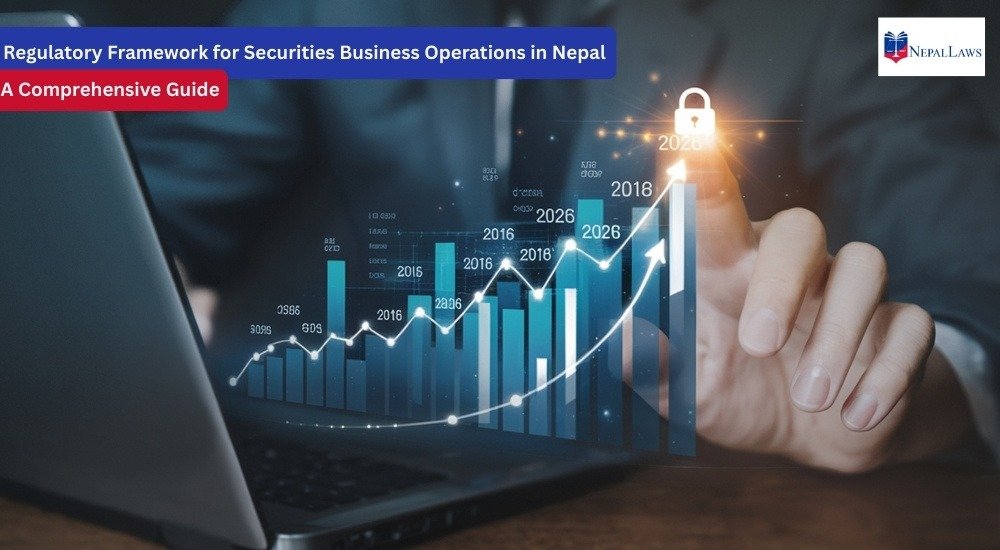Nepal’s corporate sector is evolving and increasingly integrated with the international market, which is prompting many businesses to seek foreign employees.
In fields like Information Technology (IT), infrastructure, energy, education, and development projects, foreign professionals are often hired for their specialised skills, global experience, or unique qualifications that may not be found in local arenas.
According to the United Nations Educational, Scientific and Cultural Organisation (UNESCO) report, 71.2% of the literacy rate, and this data shows the progress in education, such as IT, renewable energy, healthcare, and foreign projects. In this condition, Nepal still face skill shortages and is being filled by foreign nationals.
However, employing foreign nationals in Nepal involves much more rigorous process. This is done to prioritise Nepali workers and safeguard national interests.
Employers must follow a detailed approval process, justify their hiring needs, and comply with the Labour Act and Immigration law. These laws guide the reasonable grounds for hiring foreign professionals and explain the legal framework for foreign investors.
What Are the Legal Frameworks Required for Hiring Foreign Employees?
Hiring foreign employees in Nepal is not an open-ended process, it must be guided or regulated by a proper legal framework designed to protect local employment while addressing specific skill gaps.
The main legislative instruments include the Labour Act, 2074, Labour Rules,2075, Immigration Act, 2049, and sector-specific laws.
Here are a breakdown of core laws and regulations and how they function in practice:
1. Labour Act, 2074
Section 22 of the Labour Act, 2074, strictly prohibits the employment of foreign nationals without prior government approval and a valid work permit.
It will be valid that foreign employees can only be hired when:
- No qualified Nepali citizen is available for the role,
- The employer provides evidence of efforts made to recruit local candidates,
- A work permit is obtained from the Department of Labour and Occupational Safety (DoLOS) before employment begins,
- Vacancy announcements in national newspapers are required before applying for a foreign hire,
- Exceptions exist for hires under bilateral treaties or approved foreign investments.
2. Labour Rules, 2075
The Labour Rules outline the operational procedures for obtaining work permits. These are the things which must be included:
- Covers the detailed procedures: application forms, timelines, and fees.
- For instance, a work permit fee of NPR 20,000 applies for contracts over six months.
- Permits are valid for one year, with renewals allowed for up to five years for skilled roles.
- Grounds for rejection or cancellation of permits.

3. Immigration Act, 2049 and Its Rules
Once a labour permit is secured, foreign employees must also comply with immigration requirements:
- The foreign employee must apply for a Non-Tourist (Work) Visa through the Department of Immigration.
- Visa processing typically takes 7–15 working days once the labour permit is approved.
- Continued legal residence in Nepal depends on maintaining a visa and labour compliance.
4. Foreign Citizen Labour Permission Directive, 2075
This directive serves as a detailed regulatory guide for granting work permits to foreign nationals. Key elements include:
- Sets strict eligibility criteria and employment caps, usually no more than 5% foreign staff in most firms.
- Aims to ensure foreign employment aligns with Nepal’s labour market priorities and national interests.
5. Foreign Investment and Technology Transfer Act (FITTA), 2075
Under the Foreign Investment and Technology Transfer Act (FITTA), 2075, foreign-invested companies in Nepal are permitted to hire foreign nationals.
Here are the essential points for allowing foreign employees:
- Foreign-invested companies are allowed to employ expatriates in technical or knowledge-transfer roles.
- Such hires must be reported to the Department of Industry (DoI).
- In 2022 alone, 150 FDI-backed projects employed over 400 foreign nationals, according to DoI data.
Why Does Nepal Need Foreign Talent?
According to the World Bank 2023, Foreign Direct Investment (FDI) reached $195 million in 2022, a significant rise from $126 million in 2018, driven primarily by growth in infrastructure, energy, and technology sectors.
Here is a short look-up for why Nepali companies need foreign talent:
- Specialised Skills Gap – Only 5% of IT graduates are trained in advanced areas like blockchain or cloud computing (Nepal Economy Forum, 2022), prompting firms to hire internationally.
- Knowledge Transfer – NGOs and MNCs use foreign professionals to train locals. UNDP-led programmes have boosted rural productivity by 30% (United Nations Development Programme, 2022).
- Regional Market Access – 40% of export firms lack staff fluent in key languages (Mandarin, Hindi), driving the need for multilingual foreign hires (Federation of Nepalese Chambers of Commerce and Industry, 2023).
- Global Project Demands – Projects like Upper Tamakoshi Hydropower rely on foreign experts. 60% of infrastructure funding comes from donors requiring expatriate involvement (Asian Development Bank, 2023).
- Compliance & Leadership – Sectors like banking and telecom need foreign staff to meet global standards, and Nepal Rastra Bank (NRB) allows up to 5% foreign hires in joint ventures.
Conclusion
Hiring foreign employees in Nepal is a carefully regulated process rooted in legal safeguards to prioritise local talent while allowing for necessary international expertise. As sectors like IT, infrastructure, and energy expand, the need for specialised skills, global experience, and knowledge transfer becomes more pronounced.
By following the Labour Act, Immigration laws, and sector-specific regulations, businesses can legally and effectively bring in foreign professionals to fill critical gaps, ultimately contributing to Nepal’s economic growth and global competitiveness.




